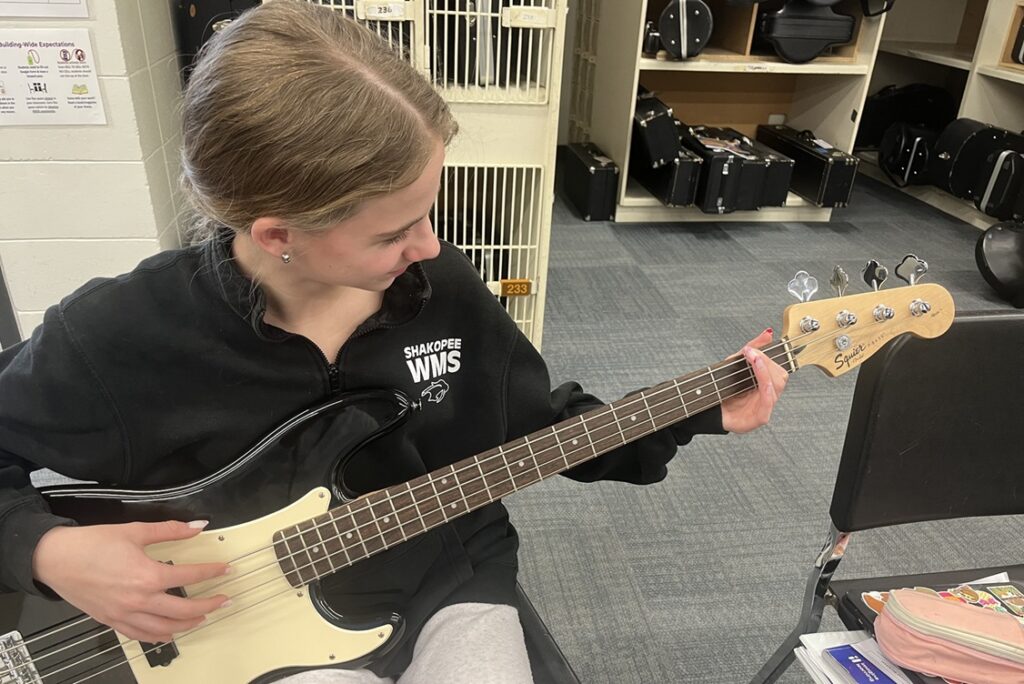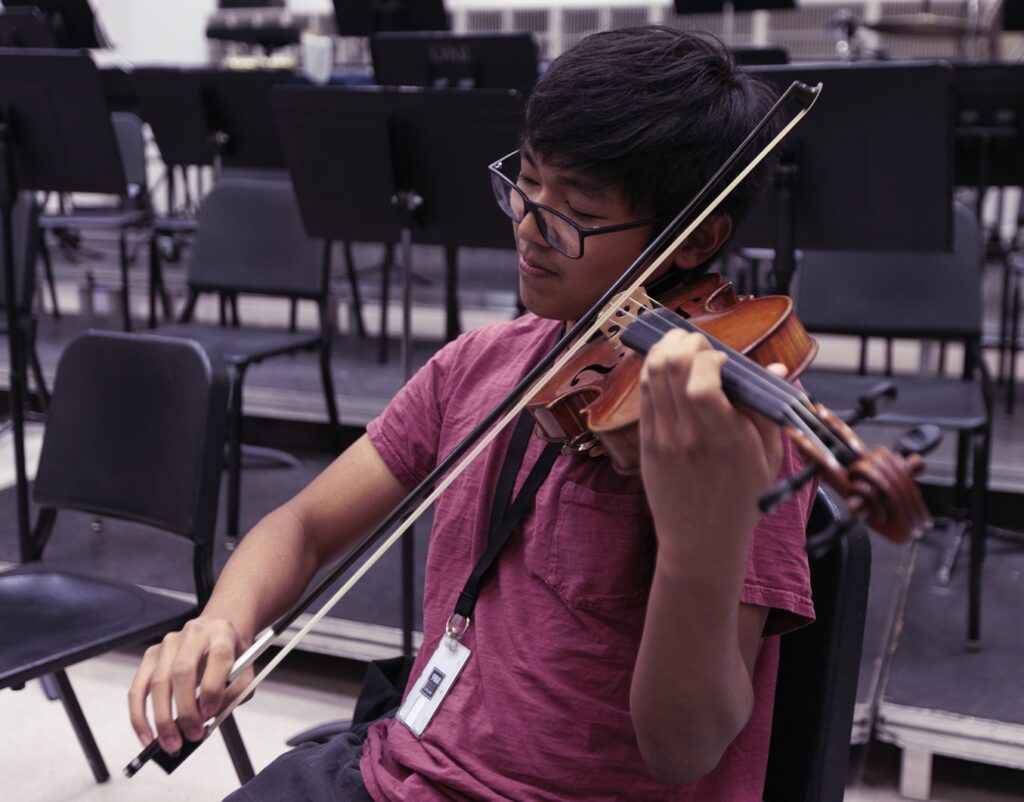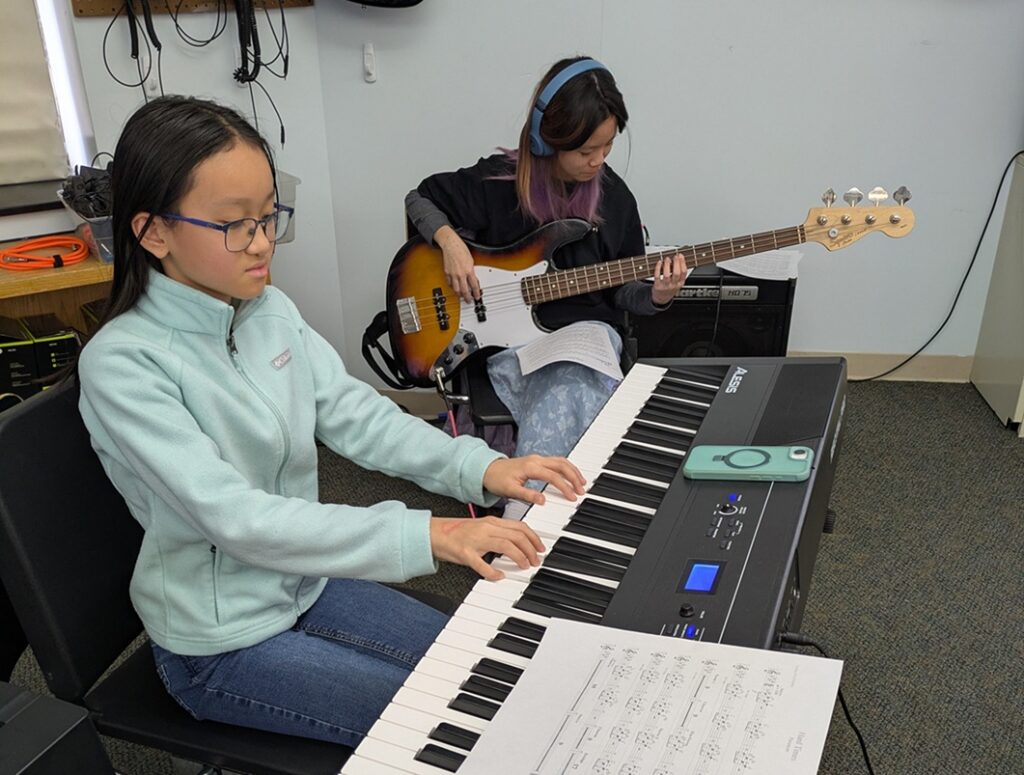Changing Jobs, Part 1: Improve Your Resume
A good resume is the first step in landing a job interview. Try these tips to improve your chances of standing out in a pile.
A good resume is the first step in landing a job interview. Below are some tips to improve your chances of standing out in a pile.
List the Most Important Things First
An old journalism rule is the inverted pyramid where the most important facts are presented first, and relevant but least important information is written about last.
That’s what a solid resume should look like. What are the top three to five most impressive parts of your career? Put them at the top quarter of the first page of your resume. These could be things like a prestigious school you attended, an important certification you received, a new program you started or a big performance.
Decide on a Format
I format my resume in this order:
- Credentials
- Professional Teaching Experience
- Accomplishments & Distinctions
- Education
- Related Experience
- Memberships
- References are available upon request
Under each header is the relevant experience with some bullet point descriptors. My format is not the right way, but simply one way to do it. I currently have 15 years of professional teaching experience — that’s why this is near the top. If I was in my first five years of teaching, I might move “Education” closer to the top. You could always combine sections and list any accomplishments under Professional Teaching Experience regarding the relevant employer.
For a more descriptive sample, this is what my “Professional Teaching” section might look like:
2016- present Professional Teaching: Director of Bands, Joliet Central High School, Joliet, IL
- Director of two curricular band ensembles; AP Music Theory instructor; Jazz Band director; Marching Band director; Pep Band director; Chamber Ensemble director.
- Created and coordinated a Guest Artist Series of national and international performers, including Dr. Leah Schuman, graduate of the Eastman School of Music, and Omar al Musfi, Syrian Recording Artist.
- Coordinated major travel and performance events to Gatlinburg, Tennessee, Chicago, and NYC.
- 2020: Joliet Central Symphonic Band invited to perform at David Geffen Hall in Lincoln Center in New York City; national invitation, solo act performance.
- Created, proposed, and received approval for “Introduction to Band” course for 2020-2021 school year.
- 2017: Marching Band selected to perform at the Chicago Thanksgiving Day Parade.
- 2019: Symphonic Band: Superior Rating at IHSA; Awarded Best of Day.
- 2017, 2018, 2019: Symphonic Band selected to perform at the University of Illinois Superstate Band Festival.
- 2017, 2018, 2019: Selection to perform at the Chicagoland Invitational Concert Band Festival.
- 2016: created second jazz group, Jazz Lab, due to student interest.
- 2016 to present: Community events, including planning and participation in the Veteran’s Day Ceremony.
- Launched Commissioning Project for 2018-2019 to create new band music; launched fundraising campaign called “Buy the Sound.” Project was fully funded in less than three weeks with Hollywood composer and Central Alum Jermaine Stegall.
- 2016, 2017, 2018: Recipient: JTHS Foundation Grants.
- 2016: Recipient: Give a Note Foundation Grant, including $2,500 and a visit from a Radio Disney Artist. Matching grant from the Country Music Awards Foundation.
- 2016: Recipient of Music Technology Grant from Ableton, Inc.
Be Mindful of Putting Your Contact Information
I list my name, phone number and personal email address on my resume — I do not include my address. Including your home address can either make you more desirable if you’re an out-of-state candidate, or it can make an employer apprehensive about interviewing you based on location. When in doubt, it’s OK to leave it off.
Do NOT use your current work email to apply for other jobs. And be mindful of your personal email address — yourname@email.com will work fine, but if your email address is 2Cute4You@puppycuddles.email, you should change it to something a little more generic.
 Have Someone Look It Over
Have Someone Look It Over
Once you have completed your resume, have two or three people look it over — close friends who know you and your work will offer valuable feedback. Also, consider reading your resume out loud to catch typos and any awkward wording. It’s essential to ensure that your presentation and grammar are consistent and free of misspellings. Believe it or not, I’ve seen resumes where candidates misspelled their current employer!
Constantly Update Your Resume
Constantly update your resume even if you’re not looking for a job. It’s a lot easier to keep track of what you are doing or have done if you regularly update your resume.
I recommend having a long-form and a short-form resume. My long-form version includes everything I’ve done that is related to my career. Every job, committee, teaching lesson, side work, etc. is included in my long-form resume, which is over 10 pages long. Think of the long-form resume as a written scrapbook of everything you’ve done.
If I’m applying for a job, I can pull relevant information from long-form resume and summarize it onto a new file that I can personalize and tailor to the job that I’m applying for. This new file becomes my short-form resume and the one that I submit
For example, If I’m applying for a high school job, I put more information regarding what I’ve done that relates to high school teaching, such as relevant job experience, working with marching bands and judging high school association auditions.
 Brag About Yourself
Brag About Yourself
This is your shot — your resume should showcase how great you are! You are literally competing for this job, so do what you have to do to ethically and morally win a chance at the position. Related to listing the most important items first, are you exceptionally good at something? List it!
I’m a fan of letting your work speak for itself, but you have to let potential employers know what you can do and have done. The goal is to get an interview where you can talk about your accomplishments, but you have to “wow” them with your resume first!
I pride myself on community service and having our ensembles contribute to our community. So I list that we perform at multiple community events each year. Another item I’m particularly proud of is that my students have the opportunity to play with some nationally known guest artists. Both of these brags go near the top of my resume. Think about what you do well and include them in your resume. Maybe it’s related to recruitment (include numbers and percentages of how much your program has grown), after-school programs (include any obstacles or problems you solved to get these started) or relationships with colleagues and students (include the impact of these relationships to your program).
Don’t Overthink Length
Ask 10 people about how long a resume should be, and you’ll get 10 different answers. So here’s the 11th opinion: Focus more on the content. If you have so many experiences and initiatives that take up three pages, go for it. It’s also OK if you have a tight one-page resume that summarizes and showcases your career and accomplishments. I haven’t found many administrators with a hard rule on resume length.
Sometimes, More Words Are Better
Which of these options sounds better?
- “Coordinated major performance and travel events involving students, parent groups and travel companies. Worked with district officials to ensure safety and logistic protocols, including overnight regulations, transportation logistics and rehearsal schedules.” OR “Planned a band trip.”
- “Guided and provided high school students with authentic leadership experiences through leading sectionals and rehearsals with sender school students.” OR “Led a summer music camp with student involvement.”
 List Other Relevant Information
List Other Relevant Information
Do you hold Google educator certificates? List it! Or did your district require you to participate in restorative practice circle training, response to intervention (RTI) or Creating Independence through Student-owned Strategies (CRISS)? List these as well.
I also have a short list of professional memberships at the bottom of my resume, along with some relevant experience such as ensembles I’ve performed in or educational writing that I’ve done. My self-imposed rule is that whatever I list must be relevant to education or music. Some people put personal items or hobbies on their resumes. I don’t, but this shouldn’t hurt if you include them.
To List or Not to List: Your Student Teaching Experience
This depends. In my opinion, include your student teaching experience if you have had only one job or if you are in your first few years of teaching. By year five, you can leave off student teaching.
An exception would be if your student teaching placement has some connection to where you are applying. For example, if an administrator at the school you are applying to worked at your student teaching placement, or if you are applying to the school where you student taught, then definitely include your student teaching information.
There Are No Rules
The big takeaway is: There are no official rules when it comes to resumes. There are certainly some norms and expectations but avoid stressing out about the perfect format. You can choose to present your resume in chronological order or organize it by project. The key is to ensure your resume includes accurate information that sells your skills in a consistent and organized fashion.
Do you have other tips or recommendations on improving your resume? Email them to us at educators@yamaha.com.
Read the other articles in the Changing Jobs series — Part 2: Interviewing Tips, Part 3: Questions to Ask Potential Employers and Part 4: Things No One Tells You About Switching Jobs.















